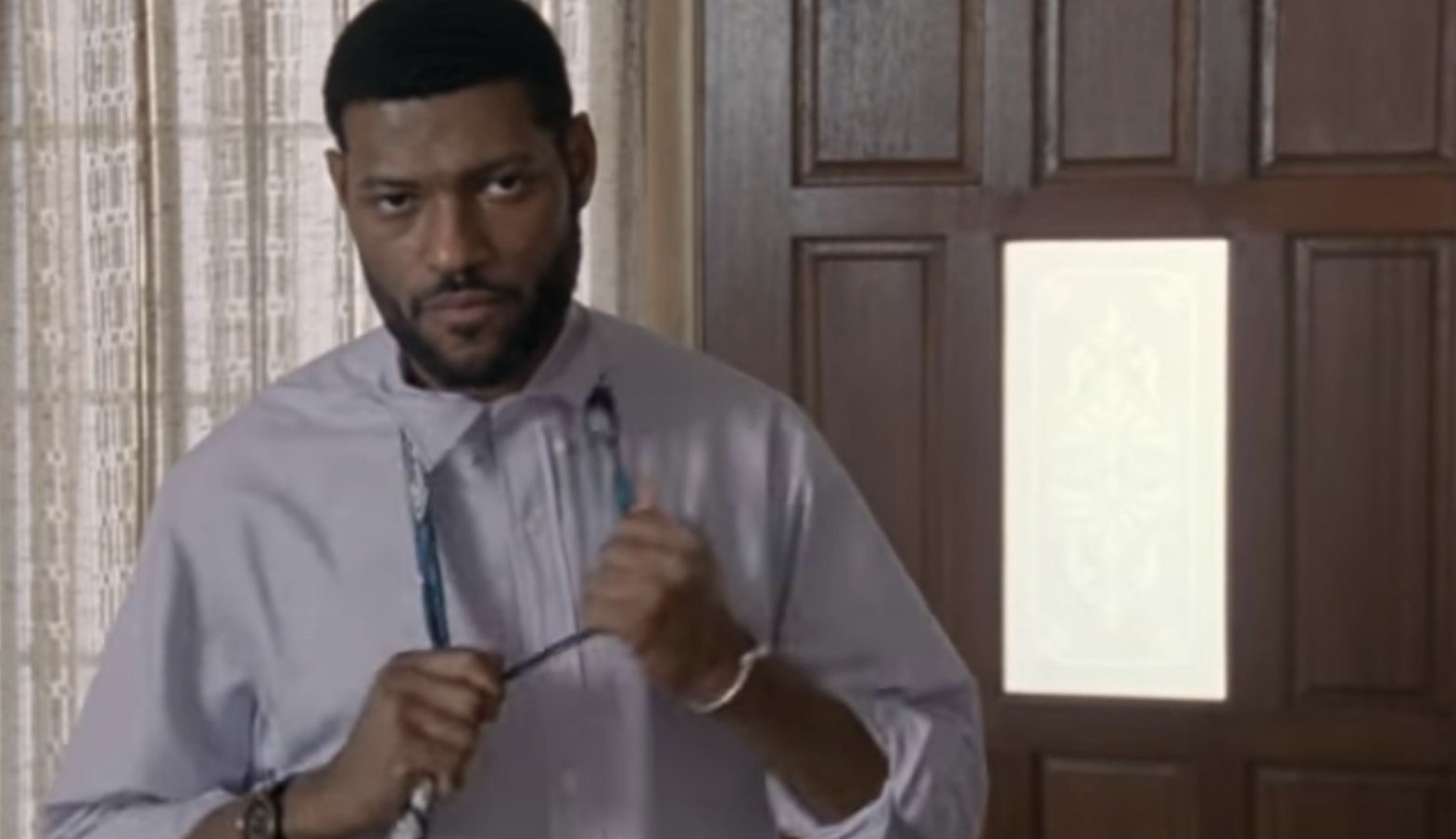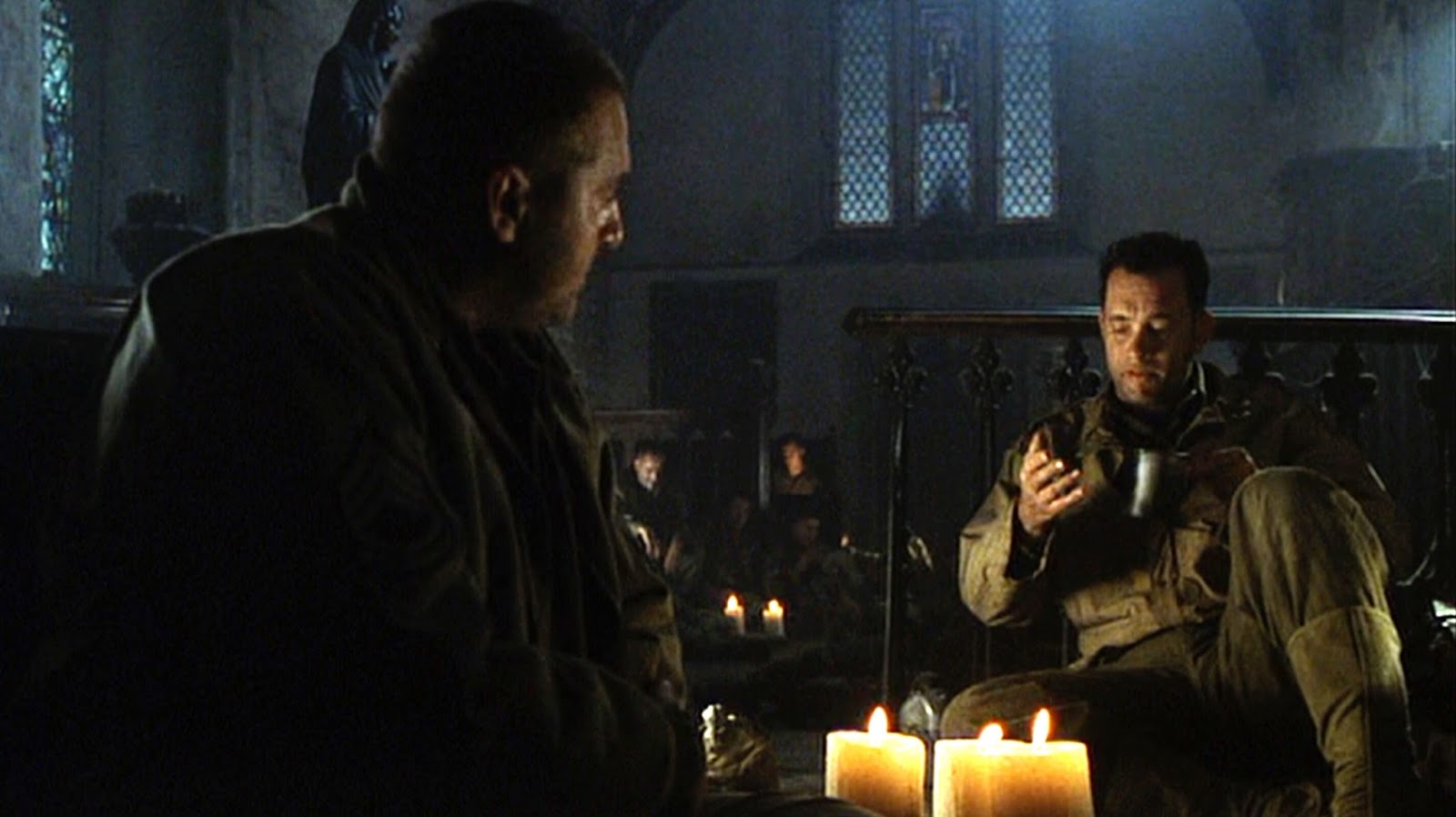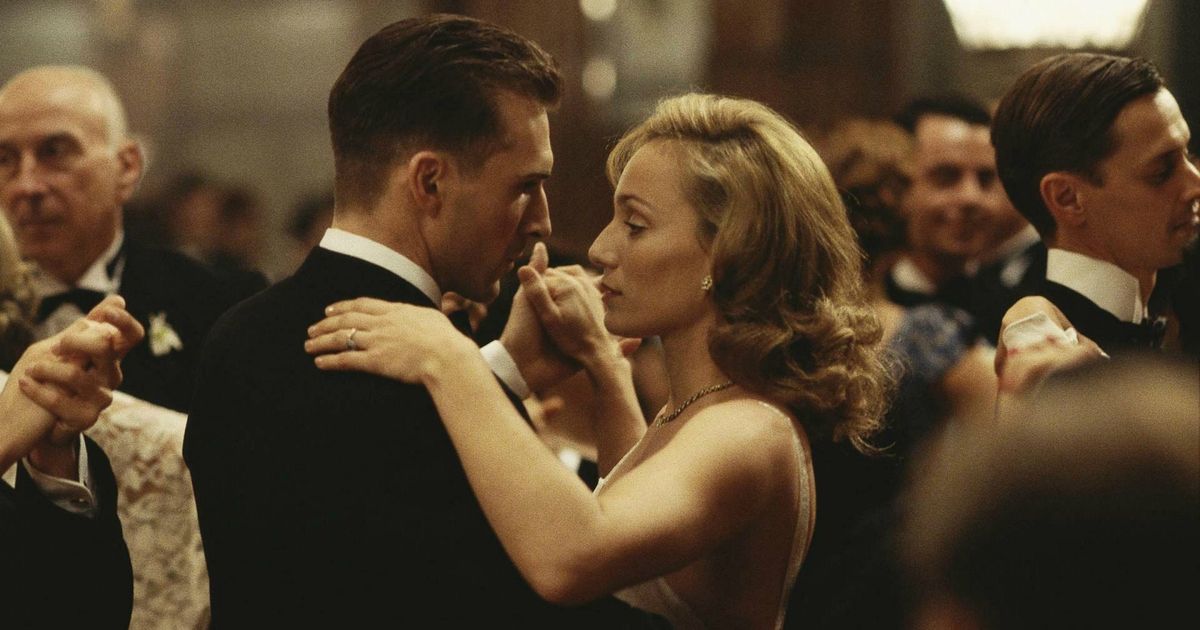I didn’t have the greatest dad. He spent a lot of time away from home, often on the road hauling logs or deep in the woods cutting them down, but that isn’t what made him absent. When he was around, he could often be found with a can of beer in his hand and numerous empties beside him. Years later, I realized he had numerous substance use issues. For that, it would be easy to forgive him but the memories of what he was like when he was drunk are still far too vivid. He was angry, violent, and abusive towards anyone who happened to be in the room with him. The fear he cast over the house was palpable and many nights it was a relief to know he wouldn’t be home because that meant I wouldn’t have to walk carefully the next time I was in the kitchen, eyes glued to the floor for broken glass or dishes that had been thrown in rage.
I grew up knowing he wasn’t a good man and that pushed me towards doing everything I could to show I was the smartest boy in the room from fifth grade to high-school graduation. My dad never completed high school and if there was one way I could prove to the world that I wasn’t him it would be my acceptance into college.
My dad had a reputation around town that hung around far longer than he did and it was important to me to show that I wasn’t my father’s son. I would never be him.
I believed I was well-thought-of by the people who knew me. My friend’s families welcomed me into their homes and I always had a place at their tables if I happened to stay for dinner and their fold-out couches always had blankets if I was staying the night. I might not have felt like a member of the family, but I didn’t feel out of place.
I’ve always had a weird feeling sleeping over at other places, especially when it came to waking up. Growing up, sleep was never my friend and it was common for me to be the first one awake at a sleepover. Most of the time I’d just lay there quietly until another friend woke up and that made it somehow okay to go to the bathroom or go get breakfast. I never wanted to be the first because for an unexplained reason it felt uncomfortable.
One morning in particular I remember waking up and pretending to be asleep while my friend’s mother and someone else were talking in the kitchen, likely having breakfast or coffee. They chatted about the town, their jobs, and other boring-ass adult stuff for the majority of the time. Eventually, the discussion came around to us kids, no more than thirteen or fourteen years old at the time. My friend’s mother talked about how her son had recently made the honor roll (something I almost always made) and her friend talked about the upcoming basketball seasons (something we all played). I listened for ten minutes as they talked about what great kids they had and how they were lucky their children had “good kids” for friends. I laid there with my eyes closed and listened to them say nice things about every other kid in that room but me. Had I been a “bad kid” I don’t know if I would have minded at all, but knowing that I was just as smart, just as talented as any of the “good kids” in that room but wasn’t worth mentioning, hurt worse than I could’ve imagined. It was never spoken aloud by either of them, but I felt excluded because I didn’t come from a good family. My parents were divorced, my dad had skipped town, and I felt that their expectations of me were either nothing or not even worth mentioning. None of my accomplishments mattered because in that town I felt I would always be associated with my last name.
It’s tough for an adolescent to grapple with that situation and I don’t know if I ever been successful in coming to terms with it all.
But I knew who to blame. Furious Styles.
My friends and I loved the movie Boyz N the Hood. It showed a slice of life we hadn’t experienced, couldn’t experience, and felt lucky for it. For us, being close to death meant watching Stand By Me for the twentieth time and wondering if we’d ever come across a dead body as we wandered the railroad tracks near our lake camps, not down the street near where older kids were hanging out. Life “in the hood” looked terrifying, but also a bit thrilling. We absolutely knew that growing up in Milo, a town where violence in its hardest form comes at you balled in a tight fist and not a hail of gunfire, was boring, but we knew we were going to be able to grow up. We could appropriate black culture without fear of repercussion because there was only one black kid in the whole school, so we never thought twice about listening to Public Enemy or NWA and claiming it as our own. It didn’t seem absurd to us that our black experience wholly consisted of buying a Malcolm X hat at the mall or watching Good Times, and it certainly didn’t enter our sheltered little minds that if we had stepped foot in South Central for one minute we’d have likely pissed our pants and every ounce of our swagger would puddle up around our Reebok Pumps.
At that age, I thought I understood what Boyz N the Hood was all about. We had to “increase the peace” and not resort to violence, respect women and each other, and love each other like brothers … or at least that’s what I wrote about in an English paper that was supposed to be about Uncle Tom’s Cabin. I never read past the first twenty pages but talking about Boyz N the Hood for four pages somehow managed to get me an A nonetheless.
What I never admitted to anyone though was that the movie didn’t scare me because of its realistic portrayal of growing up in a hard South Central Los Angeles neighborhood and its constant threat of death and violence. I was far enough removed from that to have it ever feel like it could actually happen to me and at the time I wasn’t developed enough to empathize. It certainly scared parents because they all worried we’d glorify guns and gang life because they’d all heard about what Tipper Gore said regarding “gangsta rap,” but again, I wasn’t worried because I detested physical violence.
I was scared because I didn’t want to grow up to be Doughboy.
Doughboy, played with authenticity by Ice Cube, is the young man that none of our parents wanted us to grow up to be. As a child he was always in trouble, landing himself in juvenile detention. As an adult, he completed prison sentences instead of high school. His days were spent hanging on the porch day drinking and at night he cruised the streets with his friends not usually looking for trouble but often finding it. His life was a constant disappointment to his mother and his father was never in the picture. The only thing we knew of this father was that he wasn’t the same man that fathered Doughboy’s brother Ricky. Ricky also grew up without a father sticking around but luckily he had been blessed with enough athletic talent to escape LA and head off to college on a scholarship. Doughboy loved his brother but it wasn’t hard to see the underlying resentment that would rear its ugly head from time to time. Doughboy makes his own choices but no other character in the film feels more trapped by his situation and his eventual outcome, while tragic, feels predestined from the moment we meet him. Doughboy didn’t have the potential that his brother nor his friend Tre had.
It’s Tre who serves as the story’s main protagonist. We meet him as a young man who is obviously educated but doesn’t have the smarts to know when to keep his mouth shut. Constantly in trouble at school (I’ll get my daddy. At least I got one motherfucker.) his mother sends him off to live with his father Furious. They might have not been able to make their marriage work but she believes Furious can teach their young son the discipline he needs to mature. Furious, played brilliantly by Lawrence Fishburne, is the father we all would hate to have as young boys, so much that Tre first views living with him as a punishment. Furious is not afraid to give Tre chores around the house and doesn’t shy away from being stern with him. At the same time, he’s kind enough to realize his young son knows nothing about sex but is responsible enough to teach him what it means to be a father. Each time he speaks you expect a lesson from him which later in the movie results in Tre getting teased because his father acts like a preacher. Preaching or not, when Furious spoke it was because he had something worth saying.
There’s a scene toward the end of the movie which absolutely floored me as a young man. After Tre and Ricky visited him at work and inquired about what he actually did for a living, Furious takes them on a brief field trip to a nearby corner. Posted on a billboard was a company that would pay cash for your home. As Furious begins talking about gentrification a small crowd gathers, including an elderly gentleman and some young men who obviously live the gangsta life. Both share their opinions and reasonings with Furious and he listens to all, but still stands by his point. They can’t afford to be afraid of their own people anymore and black neighborhoods need to be black-owned and sustained with black money. They need to stop killing each other and think about their futures. Furious is a fiercely intelligent man, not because he’s a preacher, but as Tre says, because “he reads a lot.” It was a profound moment of introspection and leadership from a simple man who wanted nothing more than to better the lives around him and it was easy to see the pride Tre felt towards his father.
I don’t think I ever saw my father read a book. I certainly never saw him captivate an audience while making an important point. I’m not sure if I’ve ever been proud of him. I never expected my father to be like Furious, but damn if I didn’t wish he was, and as happy as I was to eventually see him go there were days that I wish it had been different. Because as that morning at my friend’s house showed, even when he wasn’t around, he still wasn’t forgotten.
As the years went by whenever anyone asked if my parents’ divorce had any effect on me I always had the same answer ready to go. They might have divorced but I turned out just fine. I graduated high school. I went off to college. I had jobs. Hell, before long I even had a kid of my own. But even though his mother and I didn’t stay together for many reasons, I always said divorce didn’t affect me.
It did.
While I could lie to myself as much as I wanted, whenever I watched that movie I knew the truth. In one of the final scenes of the movie, right after Ricky is shot, Tre has gone to his father’s room to grab his gun so he can go out with Doughboy and enact revenge. After quickly consoling Tre’s girlfriend, Furious enters his house and slowly takes off his tie. It’s a moment of physical acting that should’ve gotten Lawrence Fishburne an Academy Award because in that one gesture we can see just how much he cares for his now-grown child. His body language tells us that this is an important moment, one in which both their lives can change for better or worse and that he is still Tre’s father. Earlier in the film, Furious had told a young Tre “those friends of yours across the street, they don’t have anybody to show them. … You gonna see how they end up. I’m glad you’re here Tre.” Those words still held true years later as he was able to talk his son into handing over the gun.
While my friend’s fathers helped coach soccer or chaperoned field trips, mine disappeared from the face of the Earth for four years. He wasn’t happy I was “there,” because I wasn’t Tre and he wasn’t there. I was and would continue to be one of the “friends across the street” that Furious worried about. It didn’t matter that my mother did a fantastic job of raising me on her own, making sure I didn’t go without and was there in the stands cheering me on because even Ricky was supported completely by his mother and didn’t escape.
Though it certainly wasn’t safe for him to be around, deep down I wanted a father to be in the picture because I wanted a father to tell me “you’re my only son and I’m not gonna lose you to no bullshit.”
It took a long time for me to realize that and it’s taking work to move past it. It’s been over two decades and even though he doesn’t live far away, I honestly don’t know where he stays because I cannot bring myself to truly care. The pain that he inflicted may have been able to bury itself deeply during my adolescent years, but it never went away. Every time I watch Boyz N the Hood it comes right back to the surface.
It still bothers me that my friends’ parents didn’t mention me that morning, whether they meant to exclude me or not. I know that much of the “insult” comes from an adolescent boy’s barely awake awareness of the situation but I also know how much one kind word would’ve meant coming from them. I wouldn’t have felt so excluded and maybe felt the tiniest bit “normal.” But at that moment I was painfully aware I didn’t have a father.
“I’ll get my daddy. At least I got one motherfucker.”
Tre knew just how to win that schoolroom argument.



Damn sir. That was a hit right in the gut. For what it’s worth, I’m proud of you my friend for becoming the man you’ve become.
Thanks TJ! Your comments and thoughts are always appreciated.
Kind words always matter, whether or not we think we’re being heard.
I know that wasn’t really your point, but that’s what grabbed me. Thanks for your writing.
Thanks for reading Sharon.